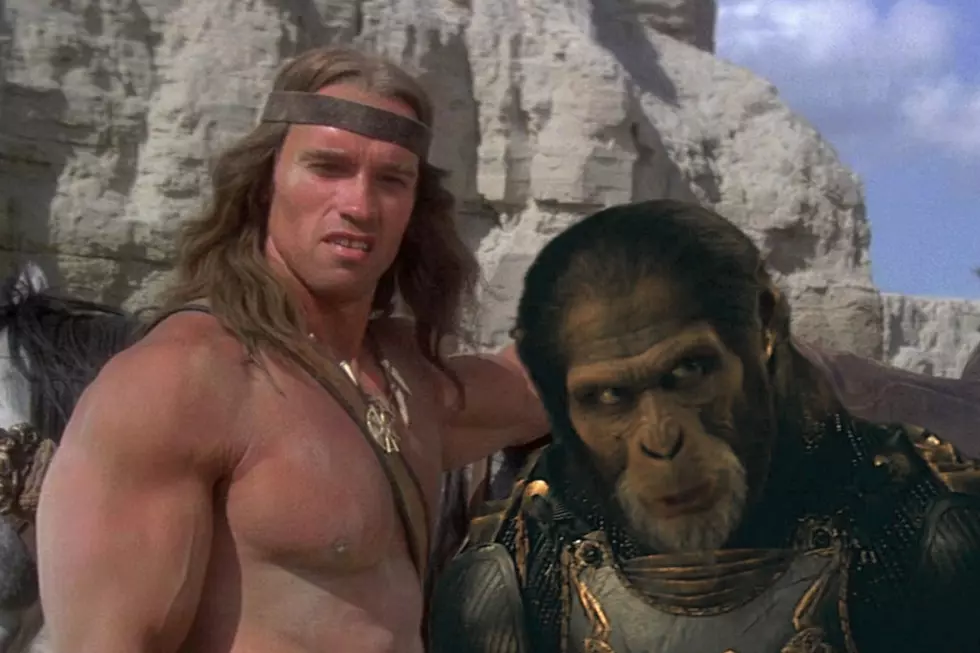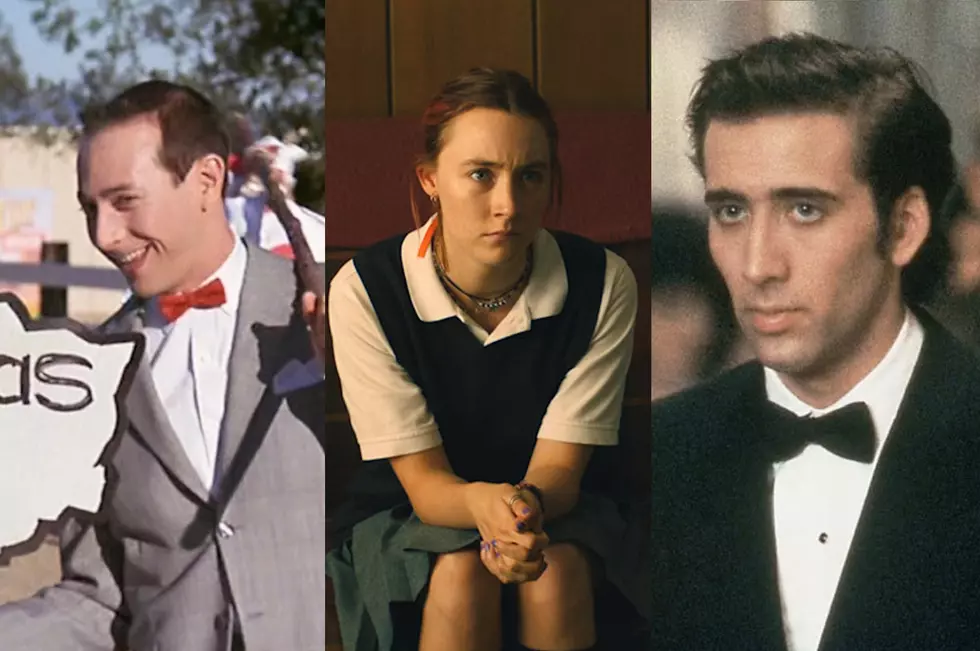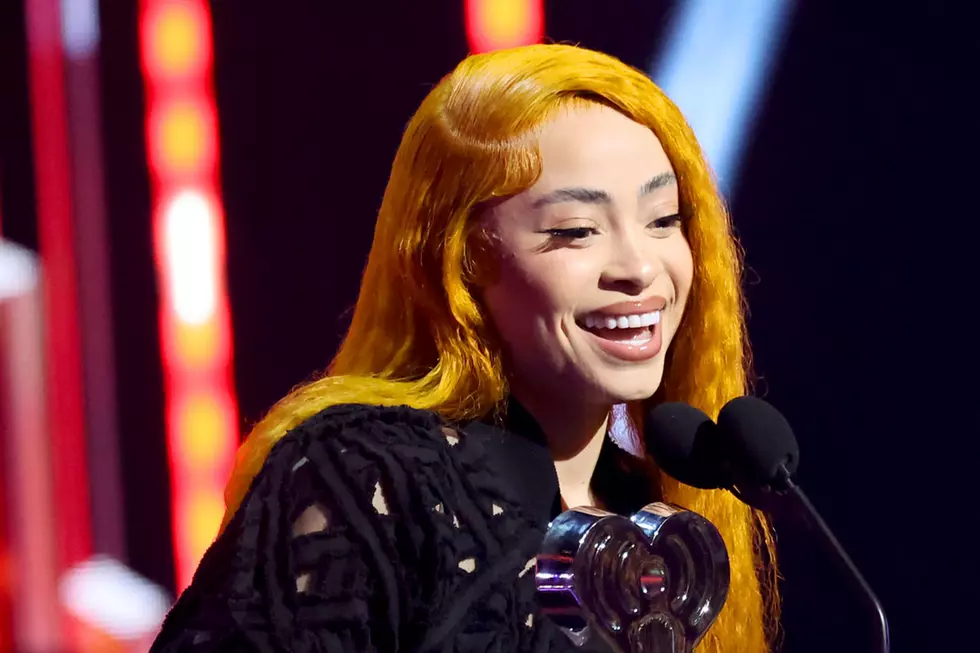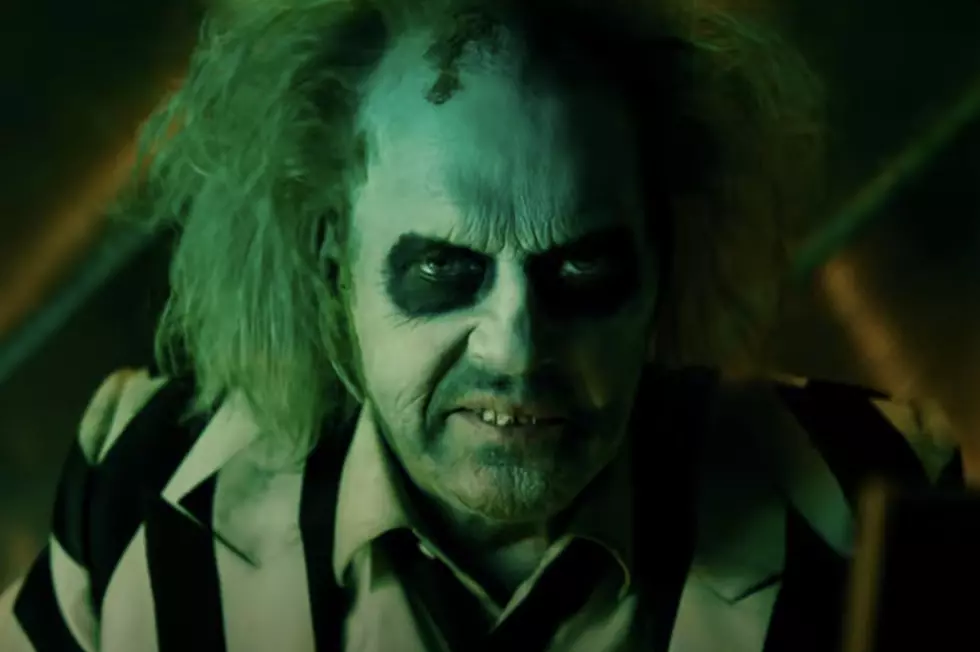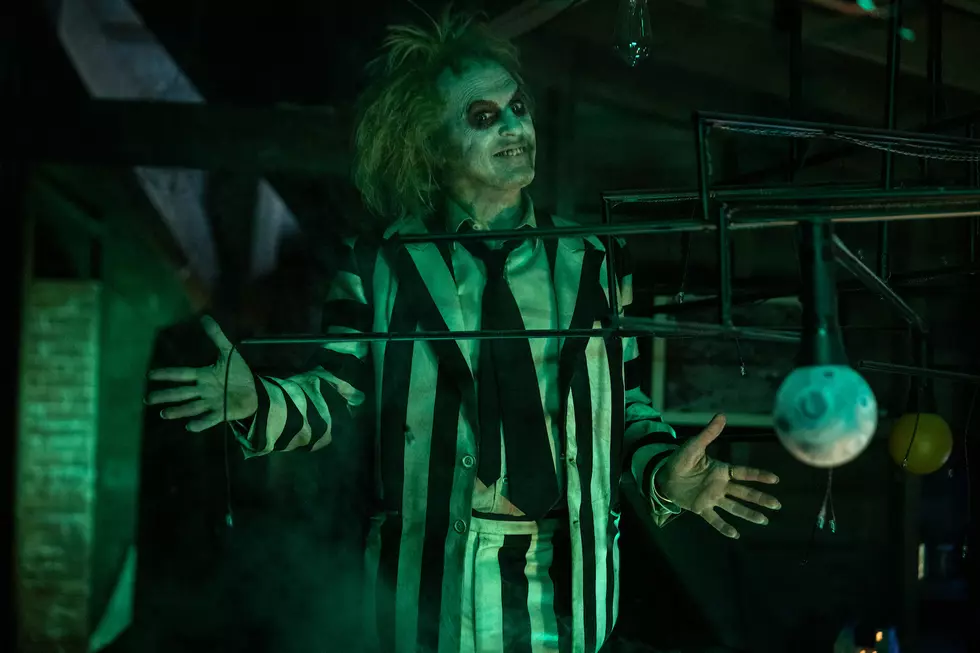
The 21 Best Movie Musicals Of The 21st Century
The musical never completely died as a movie genre, but it did lay dormant for a good long while throughout the 1980s and ’90s, with only the occasional throwback like Pennies From Heaven, Newsies, or Everyone Says I Love You popping up, like an old memory. Back then, the movie business largely conceded its tradition of song-and-dance to Disney cartoons and MTV, assuming — wrongly — that the idea of flesh-and-blood actors breaking into big numbers in the middle of narrative feature films had become too cornball for the modern mass audience.
That conventional wisdom began to change around 2001, when the surprise success of films like Dancer in the Dark, Moulin Rouge!, and Chicago reminded producers that — when done well — musicals could be sophisticated, ambitious, and hugely profitable. That’s how we got where we are today, and the release one the year’s most anticipated and acclaimed films, the tuneful Emma Stone / Ryan Gosling romance La La Land.
Because of the genre’s revival over the past 15 years, there are plenty of good choices for this millennium’s best musicals. For the sake of winnowing this particular list, a few sub-categories have been excluded. Animation is out, as are the surprisingly large number of 21st century “dance movies” like Step Up. Concert films aren’t in the pool (sorry, Justin Timberlake + The Tennessee Kids), nor are video LPs (sorry, Lemonade), or straight comedies and dramas that feature a few big performance scenes (sorry, Pitch Perfect and Beyond the Lights). Biopics like Ray, Get on Up, and Walk the Line were on the cusp of consideration, but ultimately just didn’t fit well enough within the classic definition of a musical.
The pictures that are here run the gamut from naturalism to exaggeration, and from mainstream hits to arty experiments. What they have in common is that their songs are at the center. The reality of these films bends to fit in as much music as the story and the running time can reasonably hold.
21. London Road (2015)
Directed by Rufus Norris
American audiences haven’t had much chance yet to see director Rufus Norris’ acclaimed adaptation of co-writers Alecky Blythe and Adam Cork’s unusual British stage musical. The film played a few festivals, then had an unheralded, extremely limited release in a few U.S. cities this past September. Stateside genre fans will have to wait for home video to appreciate how Norris, Blythe, and Cork guide a cast that includes Tom Hardy and Olivia Colman through their show’s sensitive exploration of one community’s response to a string of serial murders. An innovative example of a “verbatim” musical — in which the dialogue and lyrics are all taken directly from real people’s testimony and interviews — London Road is a unique little item, ready to be discovered.
20. Office (2015)
Directed by Johnnie To
Though Office’s songs could be a little catchier and its social commentary a little sharper, it’s hard to fault the eye-catching imagery and overall vision of Hong Kong director Johnnie To’s 3D musical, which was shot almost entirely on one beautifully designed, multi-tiered set. The open spaces allow To’s big setpieces to be more kinetic and free-flowing than usual, punctuating a tale of amoral ambition that updates How to Succeed in Business Without Really Trying for the age of globalism. A lot of what To and his co-writer/producer/star Sylvia Chang have to say about office politics and the corporate grind is achieved via the film’s astonishing visual design. Office has the look and scope of an old Arthur Freed MGM production crossed with Jacques Tati.
19. Chi-Raq (2015)
Directed by Spike Lee
Spike Lee helmed one of the best performance films of the new century with his document of Stew and Heidi Rodewald’s Broadway favorite Passing Strange; but since that’s primarily just a recording of a live event, it didn’t qualify for this list. (For the record, had it been under consideration, it would’ve landed in the top three.) Thank goodness, then, that one of our most musically astute contemporary directors made a full return to the genre last year, collaborating with screenwriter Kevin Willmott and assorted R&B artists on a colorful, provocative (and at times abrasive) modern adaptation of Aristophanes’ Lysistrata. Powerhouse Teyonah Parris plays a Chicago woman who inspires her female friends to withhold sex from their gun-toting men until the dudes disarm. Between the rhyming dialogue, wall-to-wall soundtrack, and unfettered satire, Chi-Raq couches a relevant social issue in pure cinematic and theatrical fantasy, in ways that aim to challenge and surprise.
18. Hairspray (2007)
Directed by Adam Shankman
Fans of John Waters’ original 1988 exercise in sweetly subversive nostalgia often dismiss the Broadway musical version — and this latter adaptation — as soft and superfluous. That’s too narrow a view. Waters’ film remains a must-see delight, but while the 2007 Hairspray’s director Adam Shankman and his creative team sanded off some of the edges, even from the stage version, they’ve still kept the celebratory rush and unflinching anti-bigotry message. Plus, Marc Shaiman’s songs and Nikki Blonsky’s lead performance as can-do teen Tracy Turnblad are infectious. It’s hard to leave this Hairspray without feeling better about humanity.
17. Josie and the Pussycats (2001)
Directed by Harry Elfont and Deborah Kaplan
Josie and the Pussycats bombed at the box office and was misread by many critics as an example of the dangerously shallow pop music industry that it was actually satirizing, but in the 15 years since its release, writer-directors Harry Elfont and Deborah Kaplan have looked more and more like prophets. Part adaptation of a cute-but-bland Archie comics spinoff — updated to make the central girl-group an indie pop-punk act instead of a bubblegum trio — and part warning about how corporations subtly control the will of the people through popular culture, this film may be more gentle in its critiques than savage, but its points are still strong and its soundtrack crazy-catchy.
16. 8 Women (2002)
Directed by François Ozon
François Ozon brought together eight of French cinema’s best actresses (including Catherine Deneuve, Isabelle Huppert, Emmanuelle Béart, and Ludivine Sagnier) for his one-of-a-kind mash-up of goofy pop musicals, old-fashioned murder mysteries, and Douglas Sirk melodramas. The film’s central locked-room puzzle — which begins with a dead body discovered at a snowbound country estate — doesn’t really amount to much until Ozon and co-writer Marina de Van deliver their delightfully sick joke of an ending. But the splendid costume and set designs, hilariously campy performances, and winking cinephile-friendly references still make this a connoisseur’s delight: A movie for movie-lovers.
15. Into the Woods (2014)
14. Sweeney Todd: The Demon Barber of Fleet Street (2007)
Directed by Rob Marshall, Tim Burton
Both of these big-screen adaptations of Stephen Sondheim musicals have flaws, large and small. Tim Burton’s version of the bloody Sweeney Todd inexplicably cuts the opening number and its refrains, and casts the weak-voiced Johnny Depp and Helena Bonham Carter in the two most crucial roles of a killer barber and his baker accomplice. Rob Marshall’s take on the revisionist fairytale romp Into the Woods features strong singers, but cuts back on the show’s humor and second-act plot, which makes it too monotonous down the stretch. Still, compared to the woeful earlier adaptations of Sondheim’s work, these two are minor miracles, retaining so much of the source material that they convey their creator’s complex genius, and how he’s translated familiar existential difficulties into beautiful songs. They’re both visual marvels too, turning stage-bound productions into actual cinema.
13. God Help the Girl (2014)
Directed by Stuart Murdoch
Stuart Murdoch, founder of Scottish indie-pop favorites Belle & Sebastian, made his debut as a feature filmmaker with this fragile, lovable pastiche of the 1960s British, French, and American cinematic New Waves. Emily Browning plays a brilliant but emotionally unstable young Glaswegian who joins a geeky guitarist (Olly Alexander) and a bored rich kid (Hannah Murray) to form a rock band. Murdoch’s songs are winsome and melodic, and while God Help the Girl doesn’t have much of a plot, it does present a look that’s vividly vintage, graced with its creator’s insights into the complicated romantic and songwriting dynamics of a group of mixed-gender musicians.
12. Lagaan (2001)
Directed by Ashutosh Gowariker
The musical never waned in popularity in India, where the Bollywood industry has continued to work elaborate dance routines and bouncy songs into motion pictures of nearly every genre. One of the most internationally popular Indian musicals — and in some ways an ideal gateway into appreciating Bollywood — is this underdog sports drama, in which the residents of a drought-stricken farming village challenge their British occupiers to a game of cricket to avoid paying taxes they can’t afford. Even at 224 minutes, Lagaan is a gripping crowd-pleaser, anchored by the matinee idol good looks of producer-star Aamir Khan, and peppered with enough political intrigue, romantic triangles, comic relief, and joyous musical numbers to make it the rare human-scaled historical epic.
11. Enchanted (2007)
Directed by Kevin Lima
There are only five songs in this knowing bit of Disney self-parody, but then that’s also generally true of the animated princess fantasies that director Kevin Lima, screenwriter Bill Kelly, and composers Alan Menken and Stephen Schwartz are satirizing. Imagining a two-dimensional Disney cartoon character springing to flesh-and-blood life in modern New York, Enchanted pokes fun at how unrealistic classic musical fairy tales can be, while also reaffirming their power to uplift and inspire. Without those big, boffo numbers — and the breakout performance by star-to-be Amy Adams — this film would fall flat. The ebullient music and smart-ass lyrics set the tone for the entire picture.
10. Dreamgirls (2006)
9. Chicago (2002)
Directed by Bill Condon, Rob Marshall
Given that both of these Bill Condon-penned Broadway adaptations made a kajillion dollars worldwide and won shelves full of awards, it’s hard to call them “underrated,” per se. But many critics rightly dinged both the Rob Marshall-directed Chicago and the Condon-directed Dreamgirls for their frenetic editing and excessive stylization, which sometimes smothers the strengths of the original material. Still, as with the two recent Sondheim films, Chicago and Dreamgirls are so magnificent in their original forms that they’re hard to mess up, so long as the people behind the camera put the shows up on the screen with minimal cutting or tampering. The rest of the most important work is accomplished in the casting, and thanks to Chicago’s lively gang of ’20s slicksters and molls (played by the likes of Richard Gere, Catherine Zeta-Jones, Renée Zellweger, and Queen Latifah) and Dreamgirls’ band of ’60s Motown impersonators (featuring Jamie Foxx, Beyoncé Knowles, Jennifer Hudson, and Eddie Murphy), these films remain a pleasure to watch even now that the initial buzz around them has died down.
8. The Last Five Years (2014)
Directed by Richard LaGravenese
Jason Robert Brown’s widely beloved stage musical tells the story of two young lovers, via alternating songs which reveal their perspectives in opposing order, with one character following the romance from beginning to end and the other from breakup to first meeting. Writer-director Richard LaGravenese hews close to the material in his film version, mostly hanging back enough to allow his two leads to shine. Jeremy Jordan is perfectly hissable as an up-and-coming writer who breaks his true love’s heart. And Anna Kendrick is luminous as that true love: An aspiring actress who struggles as her career stalls and his takes off. Structured almost like a series of mini-movies — many of them emotionally devastating — The Last Five Years mixes realism and theatricality in ways that ought to make it a cult favorite among musical-lovers for decades to come.
7. Once (2007)
6. Sing Street (2016)
Directed by John Carney
No offense intended to writer-director John Carney’s underrated 2013 musical Begin Again, but even Carney himself would admit that it’s not in the same league as his breakthrough film Once (about a singer-songwriter who gets a boost from a new collaborator, with whom he almost falls in love) and this year’s winning Sing Street (about an ’80s Dublin teen who starts a rock band to impress a troubled female peer). Both films are very different in approach, with the former having a docu-realistic, off-the-cuff feel, while the latter follows a more traditional story-song-story structure. But both are also clearly personal statements from this filmmaker, drawn from a lot of his own experiences with music, creative give-and-take, fleeting romance, and unexpected hope. More importantly, the songs in both are terrific, anchoring musical sequences that are some of the most indelible and affecting as any in contemporary cinema.
5. Guy and Madeline on a Park Bench (2009)
4. La La Land (2016)
Directed by Damien Chazelle
In part because this year desperately needs a little beauty and buoyancy, and in part because it’s a wonderful film — with career-best performances from Emma Stone and Ryan Gosling — La La Land is practically a shoo-in to clean up throughout awards season, as voters of all stripes retreat into writer-director Damien Chazelle’s romantic, bittersweet, candy-colored explication of life on the fringes of showbiz. As La La Land soars, expect Chazelle’s little-seen debut film to get pulled up along with it. In some ways Guy and Madeline is a dry run for the new movie, in that it follows a jazz musician and a struggling young woman who each pull away from their relationship for different reasons. The older picture is presented in black-and-white, and functions as a kind of grittier east coast spin on the more polished work to come. What links the two is their evocation of classic musicals — and not just of the MGM variety. There are nods to Jacques Demy and Martin Scorsese’s New York, New York in both, as they combine florid expressionism with the simple pains of everyday living.
3. Moulin Rouge! (2001)
Directed by Baz Luhrmann
One of the first big signs that the genre was alive and well in the 21st century was the phenomenal box office for Baz Luhrmann’s weirdo mega-musical: A delirious romance starring Nicole Kidman and Ewan McGregor as libertine artists in 1900 Paris. The director’s over-the-top style and his and composer Craig Armstrong’s elaborate recombinations of classic pop and rock songs risked overwhelming the audience with visual and aural information. But a generation who’d grown up with MTV and sample-heavy hip-hop music found the film both stimulating and genuinely moving. So far, Moulin Rouge! has been the pinnacle of Luhrmann’s career, as well as a new model for the musical, one so radical that few have dared to follow it.
2. Dancer in the Dark (2000)
Directed by Lars von Trier
Technically, 2000 was the end of the 20th century and not the start of the 21st, but Dancer in the Dark came out late in the year, with a platform release that stretched into early 2001. Like Luhrmann’s Moulin Rouge!, button-pushing Danish filmmaker Lars von Trier radically reinvents the genre — with songs by Icelandic avant-pop star Björk — found a sizable audience around the world. A tale of working-class exploitation and injustice, filled with stark imagery and percussive music, Dancer in the Dark doesn’t really resemble any previous movie musical, though von Trier does nod to the outsized emotions and plots of Hollywood melodramas. His biggest asset is Björk, who gives a touching performance as a single mother and factory worker who’s losing her eyesight, and who also provides music that cuts to the emotional core of the film.
1. Hedwig and the Angry Inch (2001)
Directed by John Cameron Mitchell
Actor / writer / director John Cameron Mitchell and songwriter Stephen Trask have taken several swings at telling the story of a German glam-rock fan and nightclub singer with a nub from a botched sex-change operation between her legs. The character of Hedwig has been featured in an experimental rock opera and an off-Broadway musical, and lately has been the main attraction in a Tony-winning worldwide stage hit. But the movie Hedwig and the Angry Inch is its own thing, using the tricks of cinema — from montage to dynamic camera moves to animation — to convey the basic plot of how Hedwig and her grubby band shadow a rock star (played by Michael Pitt) who stole her heart and her songs. Like the best of these modern musicals, Hedwig and the Angry Inch uses music and imagery to go both above and beneath the plot, conveying the heroine’s alienation and stung feelings as well as her thoughts on gender politics and Plato. It nods respectfully to tradition, then blazes its own path.
More From ScreenCrush


